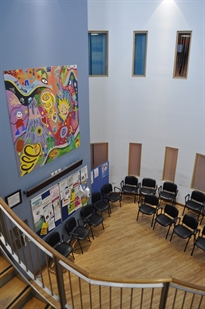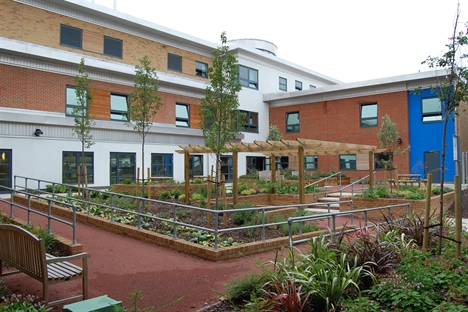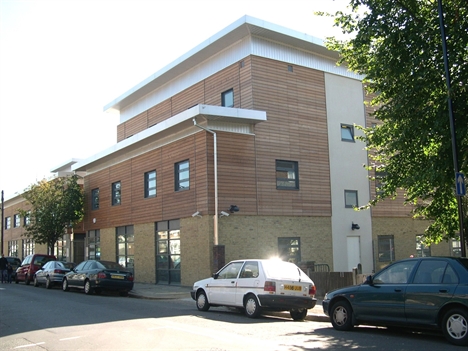23.11.15
Supporting NHS service and estate transformation in London
Source: NHE Nov/Dec 15
 With CCGs expected to have their Interim Local Estate Strategies drafted by the end of December, Nicola Theron, London area director at Community Health Partnerships (CHP) and strategic estate planning lead for London, is working with CCGs to help shape the capital’s healthcare premises for the next generation of Londoners. She argues that it’s vital that healthcare leaders understand the importance of estate as an enabler for change.
With CCGs expected to have their Interim Local Estate Strategies drafted by the end of December, Nicola Theron, London area director at Community Health Partnerships (CHP) and strategic estate planning lead for London, is working with CCGs to help shape the capital’s healthcare premises for the next generation of Londoners. She argues that it’s vital that healthcare leaders understand the importance of estate as an enabler for change.
London is one of the most diverse cities in the world and its growing population has access to some of the best hospitals and healthcare settings. But in a city with increasing levels of inequality, the NHS faces significant challenges – including rising demand from an ageing population, more people living with long-term conditions, and huge variations in terms of quality and health outcomes. These sit alongside the challenges of sustainability, devolution and the need for more housing.
At CHP we’re working with CCGs and other partners to develop and implement local Strategic Estate Plans, with the ultimate aim of using the estate as an enabler to ensure the health system better meets the needs of our communities. In practice, this means finding ways of driving system improvements, supporting service transformation and releasing capital from buildings that are no longer fit for purpose.
The need to ‘join the dots’
This service is delivered on behalf of the Department of Health with our partners NHS Property Services, with each organisation covering different areas. The 15 CCGs we support in London are commissioning healthcare for half of the capital’s population, some four million people in total, in areas including Barnet, Camden, Haringey and Islington in north London; Hackney, Tower Hamlets, and Newham in east London; and Bexley, Bromley, Greenwich, Lambeth, and Lewisham in south-east London. NHS Property Services covers 17 CCGs including Brent, Harrow, Ealing, Kingston, Merton and Croydon.
It’s reassuring to see that each CCG has recognised the need to ‘join the dots’ in terms of estate provision. They understand that the current fragmented landscape is impacting on the quality of care they are able to commission. This is a recurring frustration for many, hence there is an appetite to make strategic planning work and deliver change on the ground.
This can’t be done in isolation, though. Transforming the estate and the services delivered within it in a way that ensures land and property are used to their full potential and run efficiently relies on a truly collaborative approach. We need strategic partnerships not only to plan collaboratively, but to then deliver – clinically, efficiently and sustainably.
Priorities for London
As part of CHP’s Strategic Estates Planning service, we’re in the process of hosting a programme of local estate forums and workshops with CCGs to identify the options, priorities and objectives for each of London’s local health economies.
This is a key step in developing Local Estates Strategies and a number of interesting insights have emerged. So what are the priorities for London and what, therefore, does strategic estate planning need to deliver?
Strategic estate planning must improve the efficiency of the estate – London’s not short of estate – there’s plenty of it but much is not fit for purpose or not working hard enough. Therefore, it’s vital that we ‘sweat’ the core estate harder, improving processes, reducing under-use, and enabling commissioners to improve health outcomes and make savings from the £2.3bn tied up in out-of-hospital (OOH) estate in London.
Strategic estate planning supports transformation of services – The healthcare estate must be seen as an enabler for change, supporting new and innovative clinical and service models, and making better use of the £120m tied up in running the OOH estate.
Strategic estate planning must deliver real change in the short term – The priority is making things happen on the ground in order to build confidence, show progress to both clinicians and patients, and build evidence and engagement.
 While we recognise that many areas are at different stages in the development of their local estates strategies, and transformation is a long and complex process, CHP is already making a difference by driving efficiencies and transforming the way that services are delivered across London.
While we recognise that many areas are at different stages in the development of their local estates strategies, and transformation is a long and complex process, CHP is already making a difference by driving efficiencies and transforming the way that services are delivered across London.
The local estates forums enable and support collaborative decision-making and underpin CHP’s approach to strategic planning. But what we must not forget is that every pound saved from the estates budget is an extra pound to be invested in frontline services, and to deliver the transformation at the heart of the London Health Commission’s agenda.
About the author
Nicola Theron is a surveyor by training and spent 10 years at PwC supporting opportunities for estate to enable and accelerate change. More recently, she has been working in the NHS, planning, leading, and supporting clinical users and management teams on the delivery of new projects, with a focus on integration, delivering value-for-money solutions and capturing lessons learnt.

Case study – ‘The Centre’, Manor Park, Newham
The Centre was the first building in London to be developed through the LIFT Programme, opening in 2004. It is home to three GP practices, community services and a pharmacy. However, opportunities have emerged to use the space more efficiently, and recover the cost in unused space of £100,000 per year. CHP is leading on a major improvement programme to improve efficiency and enable a wider range of services to be delivered from the building.
Local challenges
Newham has the highest birth rate, youngest population and one of the highest ethnic minority communities in England. According to the GLA, the borough’s population is set to increase by 30% between 2015 and 2041, with proportional increases in demand for GP appointments.
Against this challenging set of local circumstances, and armed with an evidence base from the utilisation study, CHP has committed to a major programme of IT investment and structural works to improve facilities, services and efficiencies at the building. Overall, £750,000 is being invested to reconfigure the existing building and improve IT systems to provide more clinical and bookable space.

‘Sweating’ the space
There is an opportunity to more closely integrate services, provide better support for clinicians and patients, and change the existing building layout so that space can be used for additional services on a sessional basis.
A key element of the project is to define how the building can become an example of best practice in the delivery of IT and digital technologies. Helping GPs and community providers deliver better (and more) patient care, and giving patients the opportunity to access care in new and innovative ways.
Next steps
- Selection of bespoke digital and IT systems by end of 2015
- Commencement of £750,000 internal reconfiguration and upgrade works by spring 2016
- Completion of project and delivery of new services to the local community by summer 2016
Jason Kelder, head of finance (property) at Newham CCG, said: “One of our three key themes for joining up primary, community and acute care services in the borough is to use IT to support patient care wherever and whenever it is being delivered. We have worked closely with CHP to identify the best IT solutions available to achieve this ambition at The Centre in Manor Park. The results of the project will not only improve access to and delivery of services locally, but also provide an IT template for delivery of primary care services across the borough and beyond.”